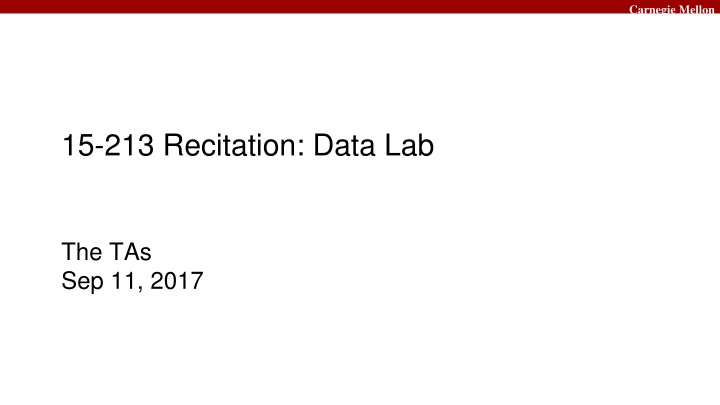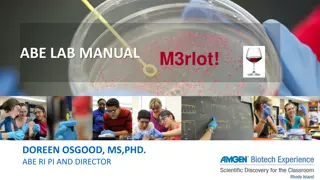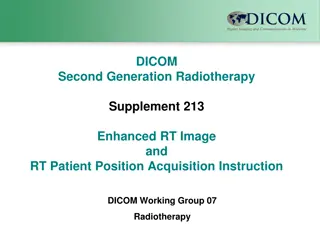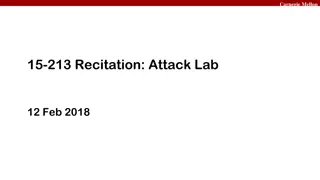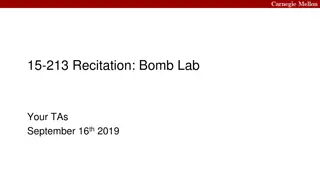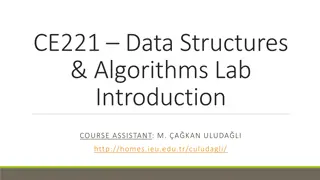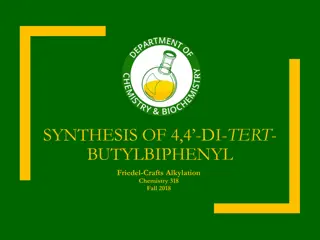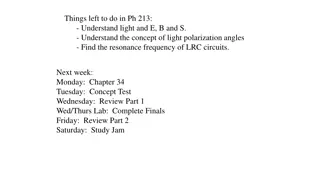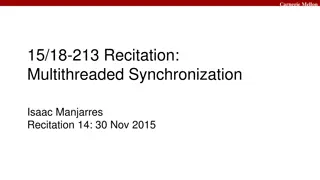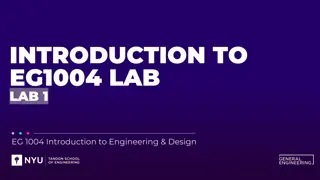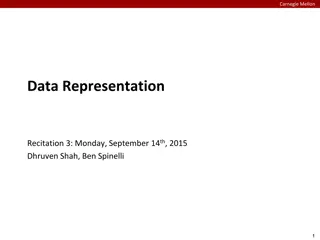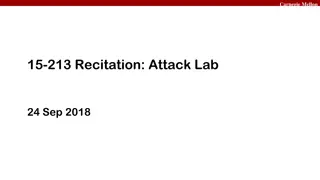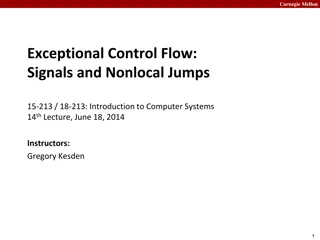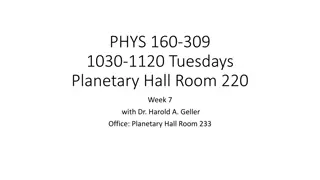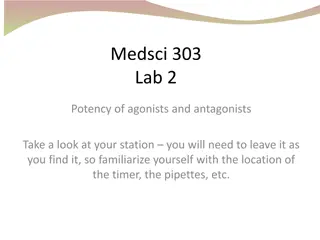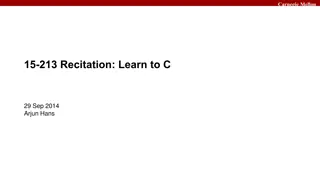15-213 Recitation: Data Lab
Welcome to the Carnegie Mellon 15-213 Recitation Data Lab! This session covers course details, getting started with the lab exercises, running your code using ANSI C, and understanding the basics of ANSI C programming. Explore the agenda, learn how to get help, and dive into the fundamentals of the Data Lab. Discover essential information on submitting lab assignments, using the provided tools, and mastering the intricacies of C programming.
Download Presentation

Please find below an Image/Link to download the presentation.
The content on the website is provided AS IS for your information and personal use only. It may not be sold, licensed, or shared on other websites without obtaining consent from the author.If you encounter any issues during the download, it is possible that the publisher has removed the file from their server.
You are allowed to download the files provided on this website for personal or commercial use, subject to the condition that they are used lawfully. All files are the property of their respective owners.
The content on the website is provided AS IS for your information and personal use only. It may not be sold, licensed, or shared on other websites without obtaining consent from the author.
E N D
Presentation Transcript
Carnegie Mellon 15-213 Recitation: Data Lab The TAs Sep 11, 2017
Carnegie Mellon Agenda Introduction Course Details Data Lab Getting started Running your code ANSI C Floating Point
Carnegie Mellon Introduction Welcome to 15-213/18-213/15-513! Recitations are for Reviewing lectures Discussing homework problems Interactively exploring concepts Previewing future lecture material Please, please ask questions!
Carnegie Mellon Course Details How do I get help? Course website: http://cs.cmu.edu/~213 Office hours: 5-9PM from Sun-Thu in Wean 5207 Piazza Definitely consult the course textbook Carefully read the assignment writeups! All labs are submitted on Autolab. All labs should be worked on using the shark machines.
Carnegie Mellon Data Lab: Getting Started Download lab file (datalab-handout.tar) Upload tar file to shark machine cd <my course directory> tar xpvf datalab-handout.tar Upload bits.c file to Autolab for submission
Carnegie Mellon Data Lab: Running your code dlc: a modified C compiler that interprets ANSI C only btest: runs your solutions on random values bddcheck: exhaustively tests your solutions Checks all values, formally verifying the solution driver.pl: Runs both dlc and bddcheck Exactly matches Autolab s grading script You will likely only need to submit once For more information, read the writeup Available under assignment page as View writeup Read it. Read the writeup... please.
Carnegie Mellon Data Lab: What is ANSI C? This is not ANSI C. unsigned int foo(unsigned int x) { x = x * 2; int y = 5; if (x > 5) { x = x * 3; int z = 4; x = x * z; } Within two braces, all declarations must go before any expressions. return x * y; }
Carnegie Mellon Data Lab: What is ANSI C? This is ANSI C. This is not ANSI C. unsigned int foo(unsigned int x) { int y = 5; x = x * 2; unsigned int foo(unsigned int x) { x = x * 2; int y = 5; if (x > 5) { int z = 4; x = x * 3; x = x * z; } if (x > 5) { x = x * 3; int z = 4; x = x * z; } return x * y; return x * y; } }
Carnegie Mellon Form Groups of 3 - 4 Series of exercises Operators Floating point Puzzle
Carnegie Mellon Floating Point: Rounding In the below examples, imagine the underlined part as a fraction. 1.BBGRXXX Guard Bit: the least significant bit of the resulting number Round Bit: the first bit removed from rounding Sticky Bits: all bits after the round bit, OR d together Examples of rounding cases, including rounding to nearest even number 1.10 11: More than , round up: 1.11 1.10 10: Equal to , round down to even: 1.10 1.01 01: Less than , round down: 1.01 1.01 10: Equal to , round up to even: 1.10 1.01 00: Equal to 0, do nothing: 1.01 1.00 00: Equal to 0, do nothing: 1.00 All other cases involve either rounding up or down - try them!
Carnegie Mellon Questions? Remember, data lab is due this Thursday! You really should have started already! Read the lab writeup. Read the lab writeup. Read the lab writeup. Read the lab writeup. Please. :)
